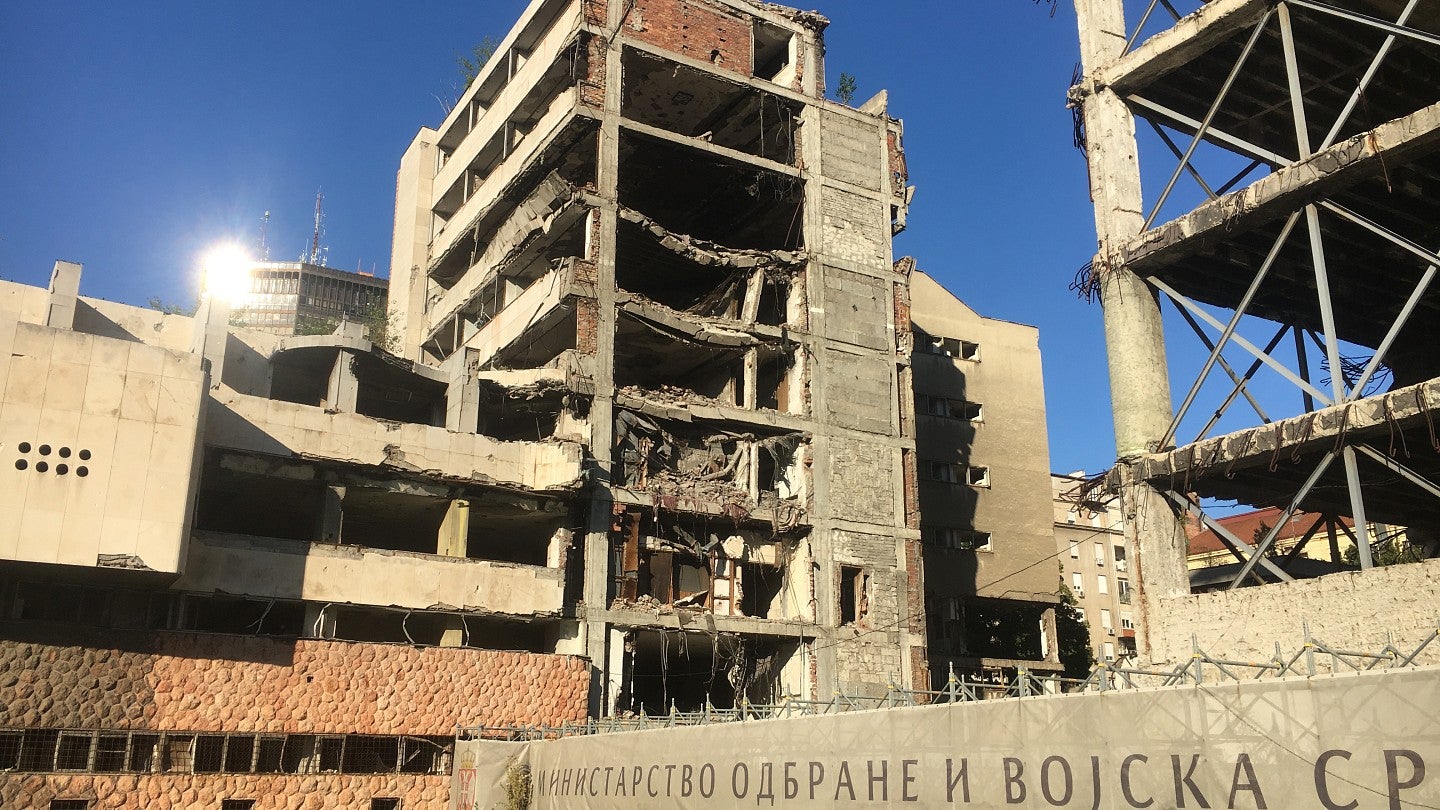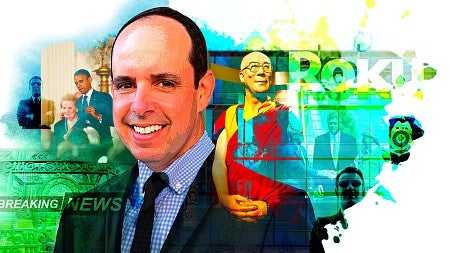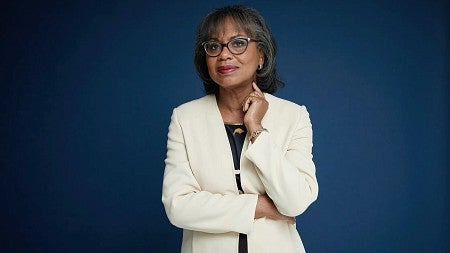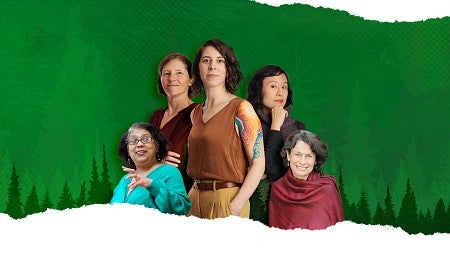
Students Study Peace in Bosnia and Herzegovina, Croatia, Serbia, Montenegro, and Kosovo
UO students travel to former Yugoslavia to study a war-scarred region and reconciliation
By Jesse Summers • Photo courtesy of Sarah Barr and Oksana Leontyuk • January 21, 2020
4 min read
Students Study Peace in Bosnia and Herzegovina, Croatia, Serbia, Montenegro, and Kosovo
UO students travel to former Yugoslavia to study a war-scarred region and reconciliation
Jesse Summers, BA ’17 (journalism: advertising, Clark Honors College), is a staff writer for University Communications.
Photos courtesy of Sarah Barr and Oksana Leontyuk
The wars of the 1990s in Yugoslavia resulted in political upheaval, the elimination of entire communities, scores of atrocities, and the deaths of some 130,000 people.
Last summer, 12 University of Oregon students traveled there to study how a war-scarred region works toward reconciliation.
Under the 10-week Human Rights and Peace Studies program, students visited the countries of the former Yugoslavia, known as the Balkans: Bosnia and Herzegovina, Croatia, Serbia, Montenegro, and Kosovo.
They saw firsthand the challenges and possibilities of peace-building—as well as the range of often conflicting stories and cultural beliefs of the region’s history.
“Students join this program because they want to understand how to promote peace and justice in the aftermath of violent conflict,” says Will Johnson, assistant vice provost in the Division of Global Engagement at the UO. “But the first thing they learn is that, like war, the process of peace-building involves a dangerously complex set of variables that almost never align in an ideal way.”
Johnson, BA ’10, MA ’14 (international studies), and JD ’14, led the trip alongside Emina Buzinkic, a longtime expert in human rights, peace, and political education in Zagreb, Croatia.
The program is a natural fit for students in international studies but also appeals to those in other programs.
“There’s not a better safe place in the world to learn about peace studies and rebuilding after a massive conflict,” says Zack Demars, a senior in journalism and political science. “I’m of the opinion that everything is connected to journalism because everything deserves to be covered and every story deserves to be told.”
Students spent the first five weeks studying historical, philosophical, and international perspectives on human rights and peace studies. This was not an easy task, as the nations of the Balkans have conflicting perspectives on the past.
“It was really challenging to first learn all the information about the region because the history is so dense and each country has their own history that they project,” says Sarah Barr, a junior in international studies. “It was really eye opening.”
For example, students learn about the Srebrenica massacre, the killing of more than 8,000 Bosniaks in 1995 that is accepted as a genocide by Bosnia and most of the world. However, the Serbian government has denied that the massacre happened.
After the course work, students spent four weeks developing research questions and interviewing leaders of human rights and peace-building organizations. A common theme among the student projects was how the conflict and its aftermath affected young people and how they related to the histories of the region.
Barr and another student explored how school content shaped youth perspectives. They found textbooks varied between countries and that segregation of students based on ethnicity persisted 20 years after the conflict.
“I learned it’s hard to dismantle a system that’s so set in stone and perpetuating off existing ideals,” says Barr.
Oksana Leontyuk, who graduated with a BA in international studies after the trip, researched youth identity. She interviewed teens and people who work with them in the cities the group visited.
She remembered a conversation with a young man in Sarajevo, the capital of Bosnia and Herzegovina, who said, “All the young people just want to move on. We’re trying to get our lives together and move on.”
The students met with lawyers, human rights activists, and political leaders, including former Croatian president Ivo Josipović. He discussed his efforts to prosecute war crimes regardless of the offender’s nationality or supposed justification for the acts.
“Everyone thinks their guy is the good guy and the other guy is a war criminal. But war crimes were committed by all sides,” Josipović told the students in a lecture in Zagreb. “And you can’t have peace until you deal with war criminals.”
Students visited sites and memorials for war crimes across the region, including a memorial to the Srebrenica genocide in Bosnia and Herzegovina. The site honors some 8,000—mainly men and boys—killed as part of the Bosnian Serb army’s ethnic-cleansing campaign.
“It was a lot to take in,” says Leontyuk. “I would read the mini-stories and those were pretty rough.”
Before the trip, Leontyuk, a PathwayOregon and Gilman scholar, thought she would pursue a job with the Peace Corps or a nongovernmental organization. Now, she plans to attend law school and become a human rights lawyer.
“After this trip,” she says, “it’s like, ‘Wow, I can make a difference, even if it’s small.’”
Jesse Summers, BA ’17 (journalism: advertising, Clark Honors College), is a staff writer for University Communications.




